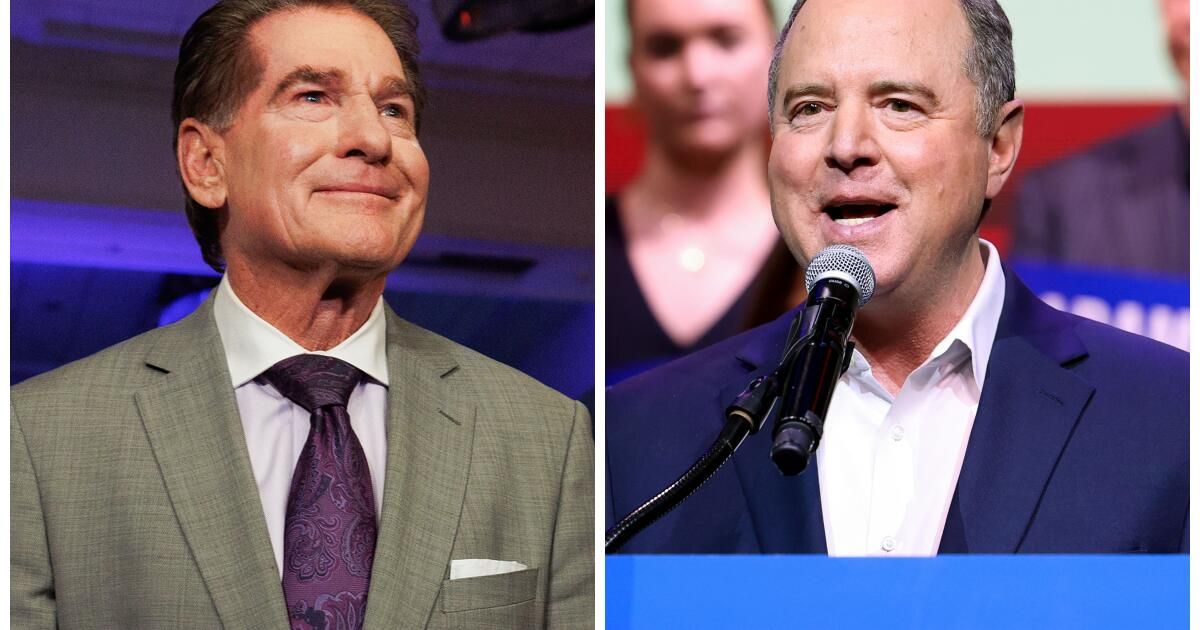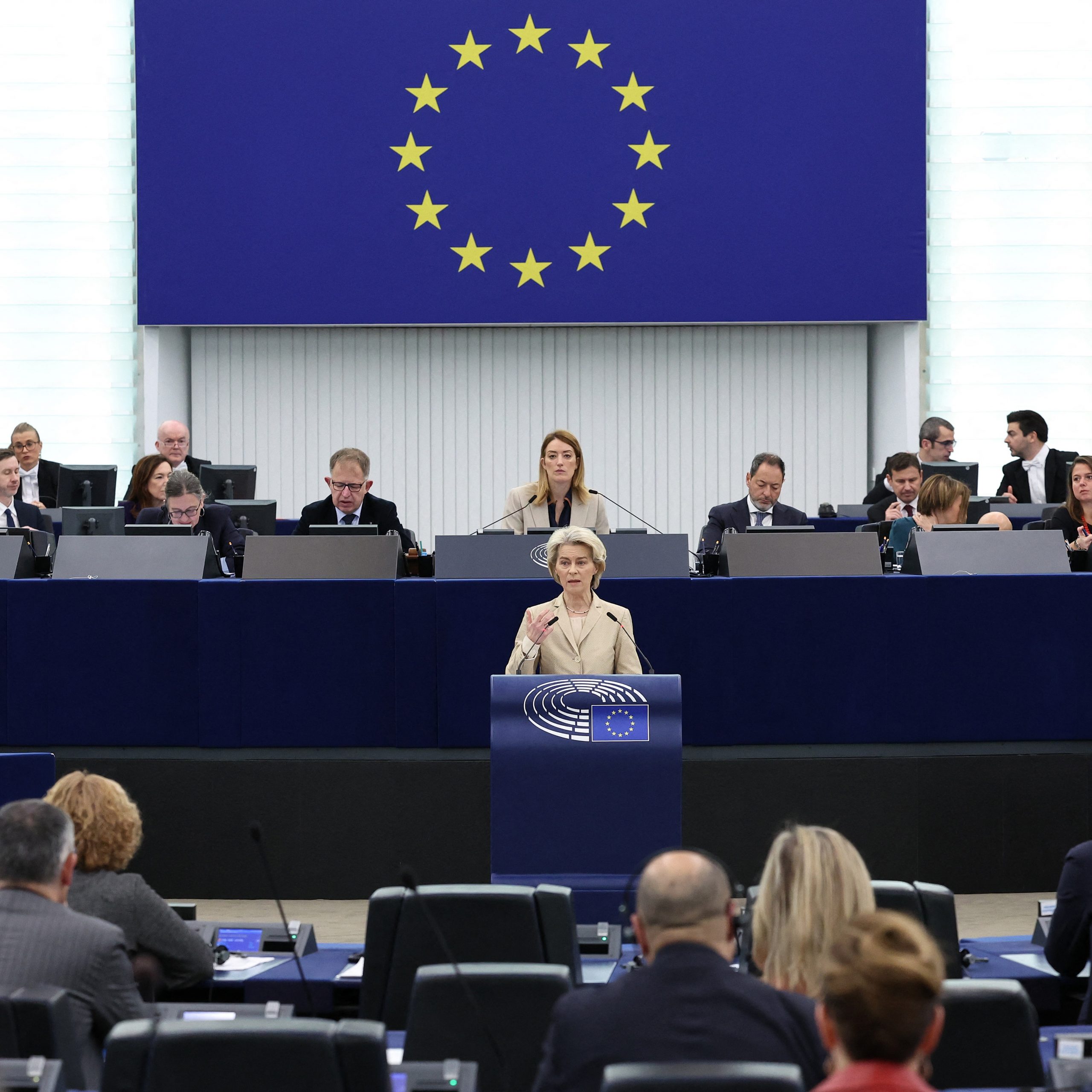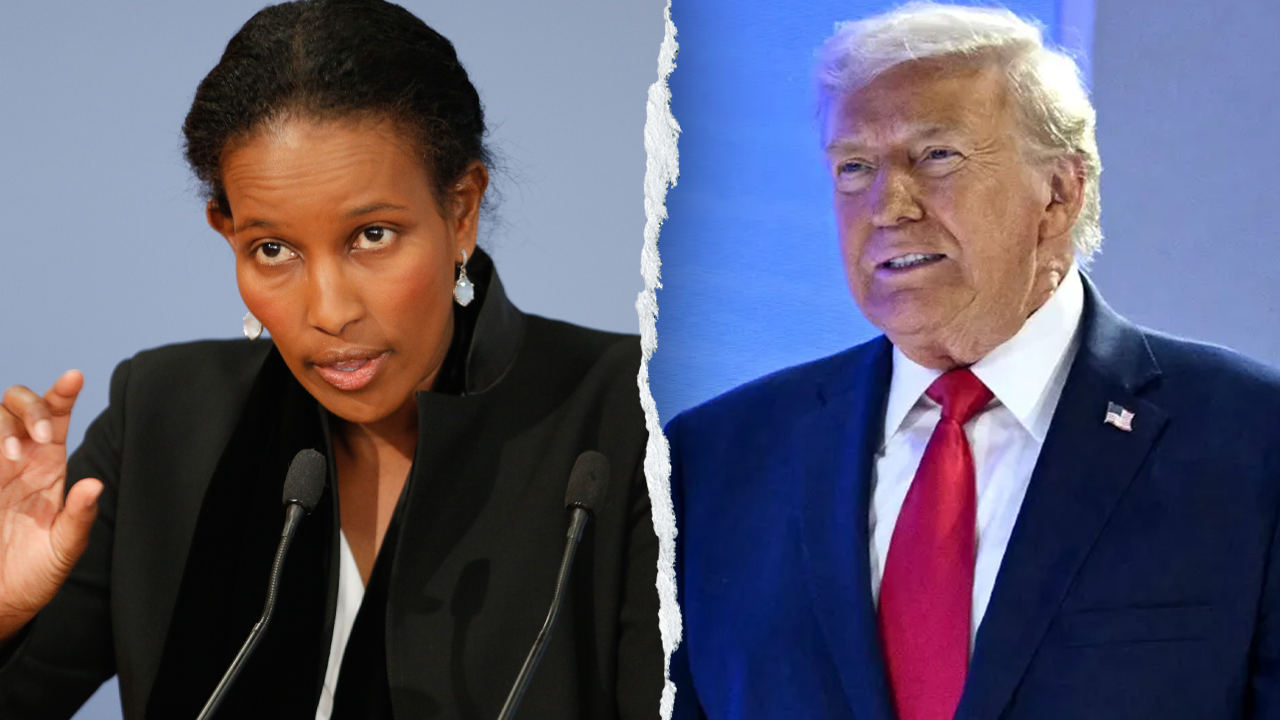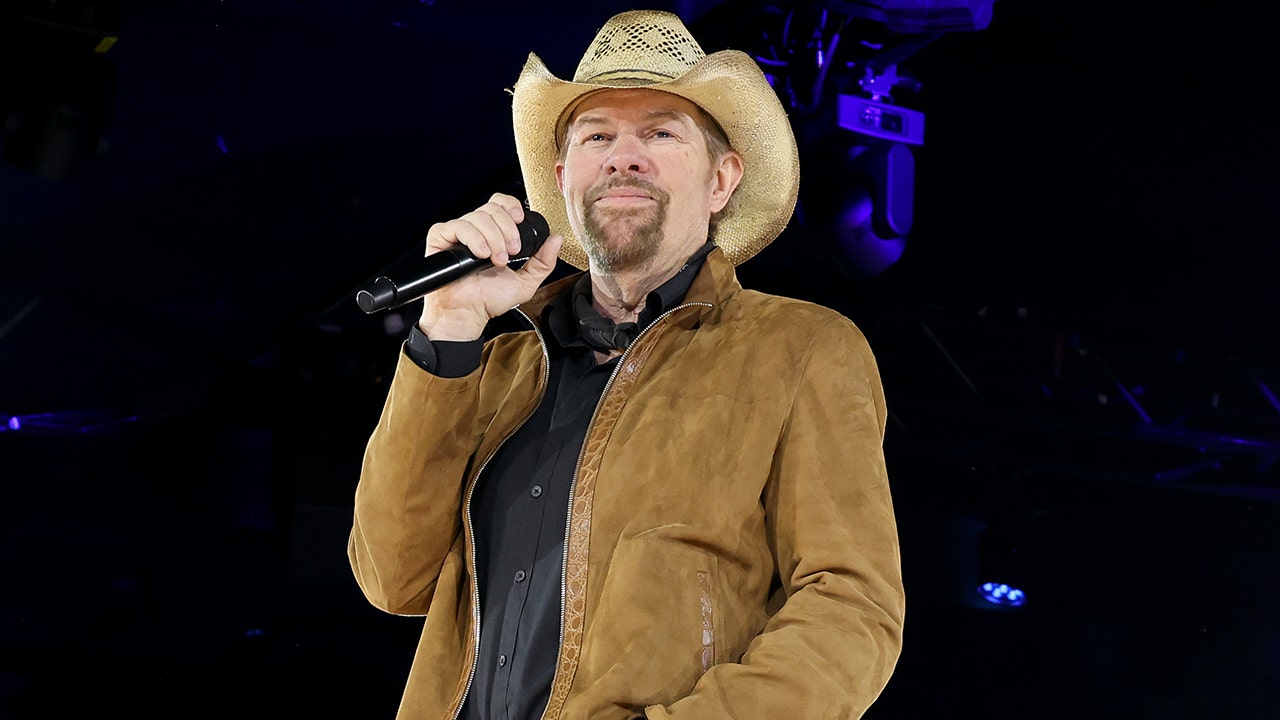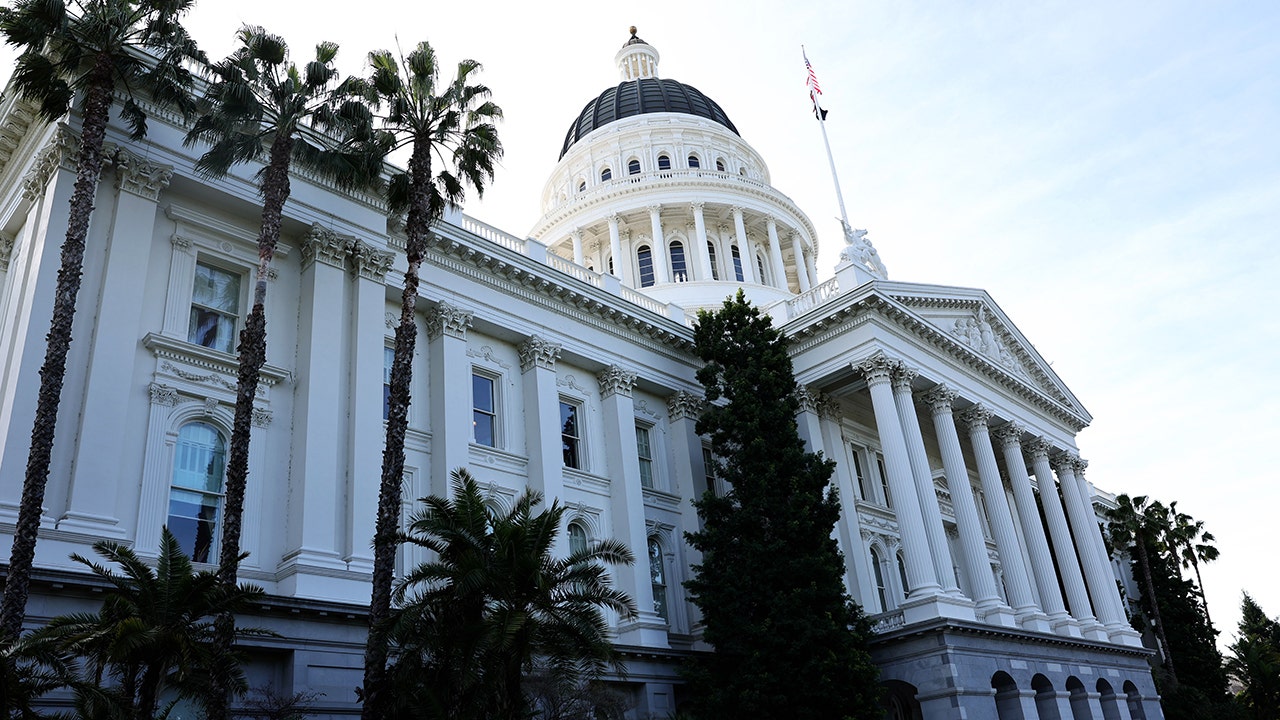Wrapping up California's most competitive Senate primary in a generation, Rep. Adam B. Schiff of Burbank and retired Dodgers player Steve Garvey will face off in November to represent the Golden State in Washington.
After months of intense campaigning, the results were final: The Associated Press called the race for Schiff less than half an hour after polls closed, and around 9 pm for Garvey. The other Democratic challengers, Rep. Katie Porter of Irvine and Rep. Barbara Lee of Oakland, were running third and fourth, respectively.
Schiff, Porter and Lee campaigned for more than a year to replace the late Sen. Dianne Feinstein, who had represented California in the Senate since 1992. Garvey, a former Dodgers All-Star, entered the race in October.
The position, one of the most coveted in California politics, is rarely available. Feinstein was in the Senate for more than three decades and Sen. Barbara Boxer served for nearly a quarter century. A Senate seat can also be a launching pad for higher office, as was the case for Vice President Kamala Harris, President Nixon and California Governor Pete Wilson.
For the first time in a generation, Californians will not be represented by a female senator. Boxer and Feinstein were elected in 1992, the so-called Year of the Woman in American politics. Whoever wins the November race will serve alongside Senator Alex Padilla, who was elected in 2022.
The state elections put Schiff, Porter and Lee – all popular Democrats working together in Congress – on a collision course for the first time, forcing California voters to examine their granular differences on the liberal spectrum.
The candidates attempted to emphasize their unique flavors of progressive politics. Schiff focused on his decades of experience in Washington, including his high-profile work as chairman of the House of Representatives during President Trump's first impeachment trial. Porter struck a populist tone and promised to confront corporate influence in Washington. Lee leaned on his long-standing progressive and pacifist credentials. And Garvey described himself as an antidote to California's failed liberal leadership.
The dynamics of the race were also determined by California's unusual “jungle primary” system, in which the top two vote-getters advance to the general election, regardless of party.
In an effort to exclude Porter, Schiff and his allies organized what amounted to a free advertising campaign for Garvey, running political ads across the state calling the former Dodgers and Padres first baseman “too conservative for California” and framing the election as a two-man race.
Garvey, who launched his campaign months after the Democratic front-runners, has barely been seen in public and did not hold any campaign events in the days leading up to the election. He has seen support for him rise in recent weeks, coinciding with Schiff's avalanche of publicity, while consolidating support among Republicans, who represent about a quarter of California's registered voters.
In a state where Democrats have a 2-to-1 advantage in voter registration, Schiff's odds are better against a Republican in November. He will be a heavy favorite, opening with a 53% to 38% lead over Garvey in a two-way matchup, according to a poll released last week by UC Berkeley's Institute of Government Studies and co-sponsored by The Times.
A race between Schiff and Porter, two Democrats, would have been more painful and costly, exposing differences between progressives and more moderate Democrats on controversial issues, including the country's military support for Israel in the war against Hamas.
Negotiations over a possible government shutdown kept Lee, Porter and Schiff in Washington until the final days of the election. They all crisscrossed the state in the final hours of the campaign, making their final case to voters.
Schiff chartered a private plane and made stops in seven cities in two days, including San Diego, Sacramento, San Francisco and Salinas. She garnered support from high-profile Democrats, including House Speaker Emeritus Nancy Pelosi and Robert Rivas, the new speaker of the California Assembly.
“Why do you think about 80% of our California colleagues have endorsed Adam Schiff for Senate?” Pelosi told the crowd at an event Sunday night in San Francisco's Dogpatch neighborhood. “Because they know he knows Congress and he knows California.”
However, not everyone gave Schiff a warm hug. Schiff, who is Jewish, has not called for a permanent ceasefire in the war between Israel and Hamas, saying he does not see “how there could be lasting peace while a terrorist organization rules Gaza and threatens to attack them any longer.” and again and again.”
A half-dozen protesters disrupted Schiff's first stop of the weekend at a plumbers and steamfitters union in Orange County, shouting, “Shame on you, Adam!” and “Children are starving in Gaza!”
Porter voted with his 18-year-old son in Irvine on Saturday and traveled through San Francisco on Sunday. A crowd at Manny's, a community space and local coffee shop in the Mission District, cheered when Porter told them that he had not received money from corporate political action committees and that the election is “an opportunity for us to define California as the vanguard of the economy.” democracy.”
Jared Barnes, 36, of San Francisco, said he supported Porter because he identified with her and her no-nonsense style.
“She's not a politician and that's what I love about her: that authenticity,” Barnes said. “I like to help the underdogs who are facing the political elite.”
Lee focused on voter-rich Southern California in the final days of the campaign, rallying supporters in the Inland Empire, San Diego, Orange County and Los Angeles. On the second floor of an Irvine bowling alley, he referenced his support for a ceasefire in Gaza and told the crowd: “When people ask what the differences are between me and my opponents, I just have to say that there are further. differences than similarities.”
Alan Vargas, 22, of Corona has been sharing enthusiastic videos about Lee with his nearly 50,000 TikTok followers. Vargas was not yet born when Lee cast his famous, solitary vote against authorizing military force in Afghanistan in 2001, but he said it was a key reason he supported his Senate bid.
“She seems to be the only voice that is just taking a stand and being bold and brash about what she believes, like young people do,” said Vargas, who said Lee's progressivism and anti-war politics are uniquely aligned with her values as a Member of Generation Z.
Laguna Beach resident Katie Loss, 69, was initially excited that, after redrawing California's electoral maps, Porter would represent her city in Congress. Loss liked Porter's tough style and she had contributed more than $1,000 to her 2020 and 2022 House campaigns.
But Loss was dismayed when, three days after being sworn in, Porter said he would run for the Senate. The timing of Porter's announcement made Loss feel that “as a new voter, our district was not his priority,” he said.
Instead, Loss supports Schiff, whom she says she has long admired for his intelligence, his more than 20 years of experience in Washington and his willingness to take on Trump. And, she said, her polite, unflappable demeanor is “much needed in the Senate.”
Although he is no longer in the Oval Office, Trump has become a major talking point in the campaign: Garvey, who voted twice for the former president, has not said whether he will vote for him again, and Democrats have used the name of the former president to polish his liberal good faith.
Lee said she was an early advocate for impeachment, as well as the lead plaintiff in a lawsuit against Trump for his role in the Jan. 6 Capitol insurrection. Porter also spoke about the impeachment trial, as well as her vigorous questioning of Trump appointees on the House Financial Services Committee.
Still, Schiff – through his role as a House impeachment manager and his regular appearances on cable news – was the most visible and forceful foil to Trump, who regularly criticized him at rallies and insulted him in social networks.
That high-profile role helped Schiff raise millions in campaign funds. Her campaign reported spending more than $22 million on advertising in about six weeks.
Although a prodigious fundraiser herself, Porter's numbers fell behind those of Schiff, who won re-election to a 12th House term in 2022 and left millions untouched in his campaign account. Those funds provided a multimillion-dollar cushion to boost her Senate campaign.
Lee struggled to raise enough money to mount a statewide advertising campaign, costing millions of dollars.
Both she and Schiff had pledged not to accept campaign contributions from corporate political action committees, a practice Porter has followed since she first ran for office in 2018.
Porter repeatedly criticized Schiff for previously accepting campaign funds from political action committees funded by corporations — including oil, pharmaceutical and financial firms — seeking to influence federal policy in Washington. She told him in a recent debate: “I didn't realize how much dirty money you've received until I ran against you.”
Schiff argued that Porter had accepted contributions from people working in the oil industry, on Wall Street and for pharmaceutical companies, and that she had accepted contributions from Schiff in the past without complaint. A Times analysis of federal campaign data showed that Schiff's two fundraising committees contributed $54,675 to Porter while she was running for the House.
The problem with “purity tests” like the ones Porter has laid out, Schiff said in a recent debate, is that “invariably, the people who set them don't follow them.”
The race was also shaped by more than $21 million in spending from outside groups, including an independent expenditure committee called Fairshake that spent more than $10 million to oppose Porter's candidacy. The group, funded by cryptocurrency investors, aired ads across the state (and chartered a plane to circle the Hollywood Hills, towing a banner) that described Porter as a hypocrite and an actor.
Times staff writer Julia Wick contributed to this report.

